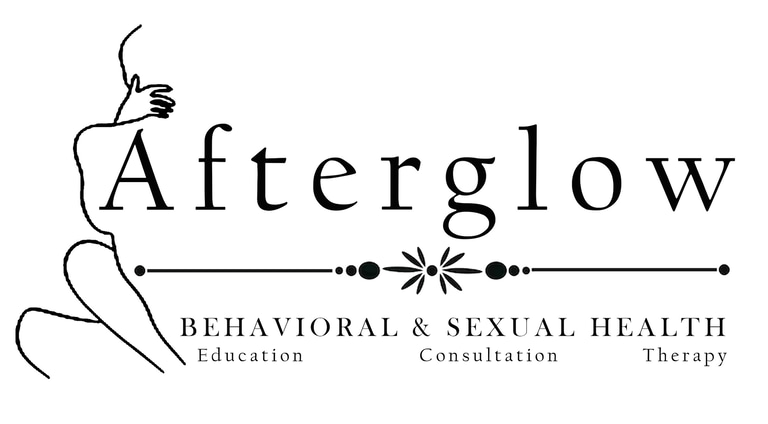Real Men Have Breasts: Breaking the Taboo Around Male Breast Cancer
Take a heartfelt, humorous, and eye-opening look at one of the least discussed topics in men’s health. Though breast cancer is often seen as a “women’s disease,” thousands of men are diagnosed every year—and far too many find out too late because of silence, stigma, or sheer disbelief that it could happen to them. This blog unpacks the biology, the risk factors, and the emotional toll, while normalizing self-checks and open conversation about a condition that can impact not only survival but also body image, confidence, and sexual health. It’s a reminder that masculinity isn’t defined by denial—it’s defined by awareness. Healing begins with understanding—Growth begins with Afterglow.
PHYSICAL HEALTH AND SEXBODY IMAGE AND SEXGENERAL SEXUAL HEALTHTHE WABI-SABI BODY
Dr. Kent
11/11/20255 min read


If you just read that title and thought, “Wait—men can get breast cancer?”—you’re not alone.
Every October, the world turns pink for breast cancer awareness. Ribbons, fundraisers, marathons, pink socks on football players—it’s an inspiring global movement. But in all that pink, one truth gets lost: men have breast tissue too, and yes, men can get breast cancer.
It’s a phrase that often earns raised eyebrows or nervous laughter, but it’s real. And it matters.
Because awareness doesn’t have a gender.
The Taboo Nobody Talks About
When most men think of their chests, “breasts” isn’t exactly the first word that comes to mind. Pecs, maybe. Abs if the lighting is generous. But “breasts”? That feels… awkward.
That discomfort is exactly the problem. The cultural taboo runs deep. Men are taught from boyhood that “breasts” belong to women, and that any acknowledgment of having them somehow threatens masculinity. So when a man finds a lump or experiences tenderness in his chest, he often dismisses it, delays care, or avoids the doctor entirely.
According to the American Cancer Society, around 2,800 men in the U.S. are diagnosed with breast cancer each year, and approximately 530 die from it. While that’s only about 1% of all breast cancer cases, it’s not rare enough to ignore—especially when men are usually diagnosed later in the disease’s progression because of delayed detection.
Early awareness literally saves lives. But to get there, we have to dismantle the embarrassment that keeps men quiet.
Why Men Have Breast Tissue in the First Place
Let’s start with some biology: before puberty, male and female embryos develop similarly, both with breast tissue and milk ducts. When puberty hits, testosterone in boys stops that tissue from developing further, while estrogen in girls keeps it going. But those early structures—ducts and glandular cells—don’t disappear. They just shrink. And in rare cases, those same cells can mutate and form cancer, especially under certain hormonal, genetic, or environmental influences.
In short: men don’t have “women’s breasts”—they have their own. Smaller, flatter, less prominent, but biologically similar enough to get the same disease.
So no, this isn’t “weird.” It’s human.
Causes and Risk Factors
Breast cancer in men doesn’t happen overnight. Like most cancers, it’s a combination of genetics, hormones, lifestyle, and luck.
Here’s what research tells us:
Genetics play a major role. About 10–20% of male breast cancers are linked to inherited mutations in the BRCA1 or BRCA2 genes—the same ones that increase risk for women.
Hormonal imbalance can contribute. Conditions that raise estrogen levels—like obesity, chronic liver disease, or certain medications—may increase risk.
Age is a factor. The average diagnosis age for men is around 68, but cases are rising in younger men due to better detection and changing lifestyle factors.
Radiation exposure (especially to the chest area) or testicular disorders can also influence hormone levels and risk.
So while men might not have mammary glands capable of milk production, they absolutely have enough tissue for trouble to start.
Detection: What Men Should Know
Here’s the simple truth: most men don’t think to check. And that’s what has to change.
Symptoms of male breast cancer often include:
A firm, painless lump near the nipple or under the areola
Changes in skin texture (dimpling, scaling, redness)
Nipple discharge (especially if bloody)
Inverted nipples or changes in shape
Swelling in the armpit
Because men have less breast tissue, lumps can feel more pronounced and spread faster, which makes early detection even more critical.There’s no reason a man shouldn’t perform a quick monthly self-check—just like women do. It takes less than 60 seconds. Run a hand across the chest and underarm while showering. Notice any changes. If something feels off, talk to your doctor. It’s not weird; it’s responsible.
And while we’re at it—let’s normalize men scheduling annual checkups that go beyond cholesterol and blood pressure. The chest deserves the same respect as any other organ.
The Emotional and Sexual Impact
Here’s where the conversation gets especially personal.
Because while cancer changes the body, it also changes how a man feels in his body—and that includes his sexual identity. Many men diagnosed with breast cancer describe a unique kind of isolation. They walk into oncology clinics painted pink, surrounded by women’s magazines and floral decor, and realize: this world wasn’t built with them in mind. The lack of representation amplifies shame and confusion.
Therapeutically speaking, this isolation often morphs into anxiety, depression, and sexual insecurity. Some men feel betrayed by their bodies—like having a “feminine” cancer makes them less masculine. Others struggle with scars from surgery or changes in hormones that affect libido.
But here’s the thing: masculinity isn’t in the chest—it’s in the courage to care for yourself.
Studies from the Journal of Cancer Survivorship show that men who receive psychosocial or couples-based support report significantly higher self-esteem, sexual satisfaction, and body confidence post-treatment. Translation: when men talk about it—especially with partners and therapists—they heal faster, both physically and emotionally.
Treatment and Sexual Health
Treatment for male breast cancer mirrors that for women, often including surgery (mastectomy), radiation, chemotherapy, or hormone therapy.
While these treatments save lives, they can bring side effects that influence sexual health:
Fatigue and pain may reduce libido temporarily.
Hormone therapy (like tamoxifen) can lower testosterone and cause erectile changes.
Body image shifts after surgery can make intimacy feel uncomfortable at first.
But these changes don’t define the future. In most cases, libido and function return gradually. With open communication, reassurance, and sometimes medical or therapeutic support, men can rediscover a healthy and fulfilling sex life post-treatment. In fact, many survivors report that sex becomes more intimate after cancer—less about performance, more about connection and gratitude. Because when life reminds you of its fragility, pleasure takes on new meaning.
Why Awareness Matters for Everyone
Male breast cancer is rare, but awareness benefits all men—and the women who love them.
Because when health becomes genderless, everyone wins. Partners play a crucial role here. Research from the Journal of Men’s Health found that men are twice as likely to seek medical evaluation if encouraged by a partner or loved one. Gentle reminders, shared checkups, and open dialogue about health can literally be life-saving.
The more we normalize these conversations—between partners, friends, and clinicians—the fewer men will face late diagnoses or silent shame.
Breaking the Stigma with Humor and Humanity
Humor is one of the best antidotes to shame. So yes, men have breasts. You can call them pecs, chests, or man boobs if it makes you more comfortable—but whatever you call them, they need care. Because masculinity isn’t about denial—it’s about ownership. It’s about knowing your body, checking your body, and advocating for your body.
And if that means taking a moment in the mirror to feel for lumps? That’s not feminine. That’s smart.
The Afterglow of Awareness
Male breast cancer may not get the spotlight, but it deserves the conversation. Awareness breaks taboos, reduces stigma, and saves lives. If you’re a man reading this, take one thing away: your chest isn’t exempt from care. Check it, protect it, and talk about it. If you’re a partner, remind him that awareness is an act of love, not alarm. Because the strongest men aren’t the ones who ignore their bodies—they’re the ones who understand them.
Healing begins with understanding—Growth begins with Afterglow.
Connect with us
© 2025. All rights reserved.
dr.kent.sexhealth@gmail.com


